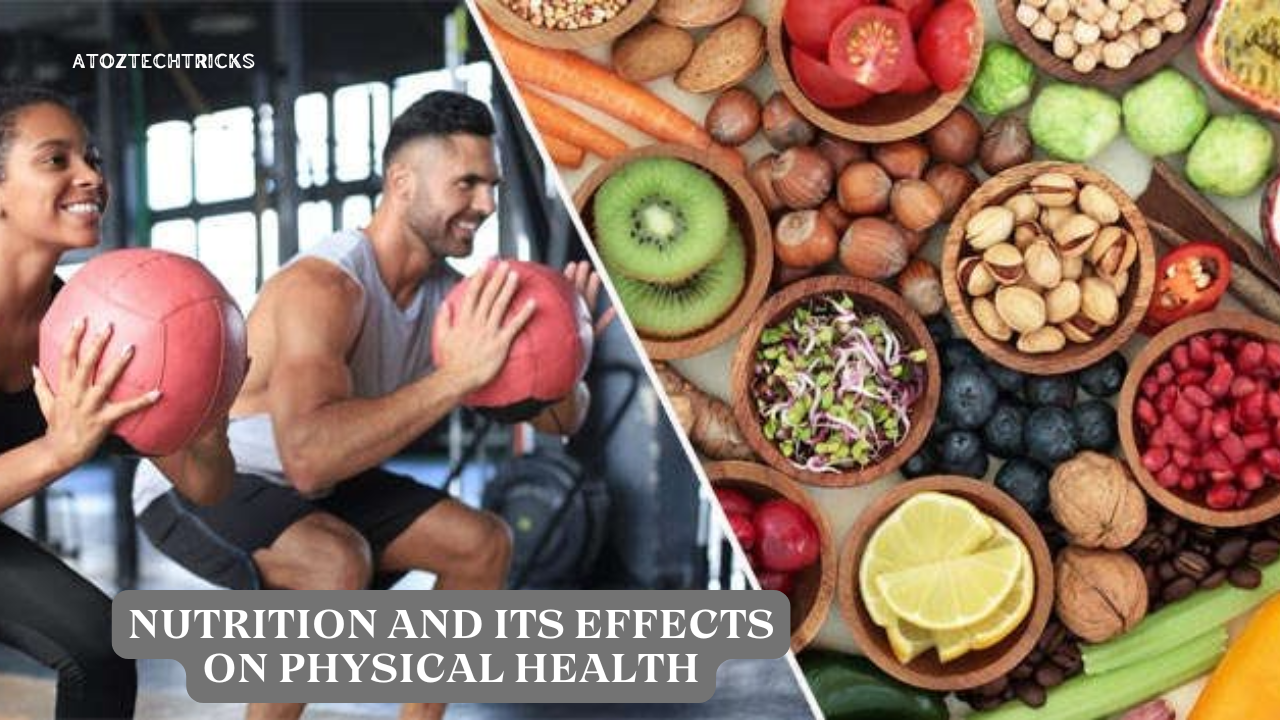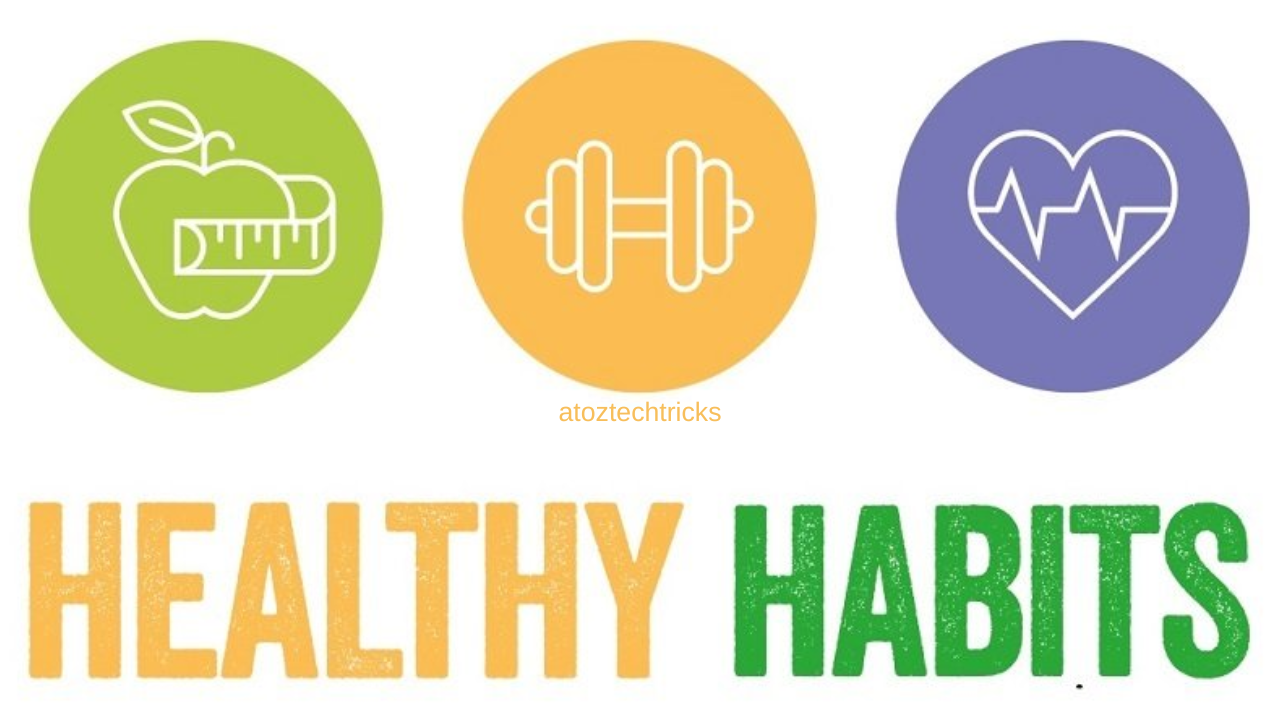Nutrition and Its Effects on Physical Health
Nutrition is a cornerstone of physical health and well-being. The foods we consume provide the essential nutrients that our bodies need to function optimally. Understanding how nutrition impacts physical health can help individuals make better dietary choices, manage weight, prevent diseases, and enhance overall quality of life. This article delves into the intricate relationship between nutrition and physical health, exploring how various nutrients influence bodily functions and health outcomes.
The Fundamentals of Nutrition
Nutrition refers to the process by which our bodies obtain and utilize nutrients from food. Nutrients are substances that provide energy, build and repair tissues, and regulate bodily processes. The six essential nutrients are:
- Carbohydrates: Provide energy.
- Proteins: Build and repair tissues.
- Fats: Store energy and support cell function.
- Vitamins: Regulate body processes and support immune function.
- Minerals: Strengthen bones, transmit nerve impulses, and maintain fluid balance.
- Water: Essential for hydration, digestion, and temperature regulation.

The Role of Macronutrients
1. Carbohydrates
Carbohydrates are the body’s primary energy source. They are broken down into glucose, which fuels bodily functions and physical activities. Carbohydrates are classified into simple (sugars) and complex (starches and fibre) types:
- Simple Carbohydrates: Found in fruits, vegetables, and dairy products. They provide quick energy but can lead to blood sugar spikes if consumed in excess.
- Complex Carbohydrates: Found in whole grains, legumes, and vegetables. They provide sustained energy and are rich in fibre, which aids in digestion and helps regulate blood sugar levels.
Effects on Physical Health:
- Energy Levels: Adequate carbohydrate intake ensures consistent energy levels throughout the day.
- Digestive Health: Fiber helps prevent constipation and supports a healthy gut microbiome.
- Weight Management: Fiber-rich foods can help with satiety, reducing overall calorie intake.
2. Proteins
Proteins are crucial for muscle growth, repair, and overall body maintenance. They are made up of amino acids, which are the building blocks of the body.
- Complete Proteins: Contains all essential amino acids. Found in animal products like meat, eggs, and dairy.
- Incomplete Proteins: Lack of one or more essential amino acids. Found in plant-based foods like legumes, nuts, and grains.
Effects on Physical Health:
- Muscle Repair and Growth: Essential for recovery after exercise and maintaining muscle mass.
- Immune Function: Proteins play a role in the production of antibodies and immune cells.
- Metabolism: Proteins have a higher thermic effect compared to carbohydrates and fats, meaning they require more energy to digest.
3. Fats
Fats are a dense source of energy and are vital for several body functions. They are classified into:
- Saturated Fats: Found in animal products and some tropical oils. Excessive intake can increase the risk of heart disease.
- Unsaturated Fats: Found in plant oils, nuts, and fatty fish. They support heart health and reduce inflammation.
- Trans Fats: Created through industrial processes and found in some processed foods. They are harmful and should be minimized.
Effects on Physical Health:
- Heart Health: Unsaturated fats can help lower LDL cholesterol levels and reduce the risk of heart disease.
- Brain Function: Omega-3 fatty acids, a type of unsaturated fat, are essential for brain health and cognitive function.
- Hormone Production: Fats are involved in the synthesis of hormones, including those related to stress and metabolism.
The Importance of Micronutrients
1. Vitamins
Vitamins are organic compounds required in small amounts for various bodily functions. They are categorized into water-soluble (e.g., vitamin C, and B vitamins) and fat-soluble vitamins (e.g., vitamins A, D, E, and K).
Effects on Physical Health:
- Vitamin C: Supports immune function and aids in collagen production, which is vital for skin, bones, and blood vessels.
- Vitamin D: Essential for calcium absorption and bone health. It also supports immune function and mood regulation.
- Vitamin A: Crucial for vision, immune function, and skin health.
2. Minerals
Minerals are inorganic elements that play key roles in maintaining bodily functions. Important minerals include calcium, potassium, iron, and magnesium.
Effects on Physical Health:
- Calcium: Essential for strong bones and teeth, muscle function, and nerve transmission.
- Iron: Necessary for oxygen transport in the blood and energy production.
- Potassium: Helps regulate blood pressure, fluid balance, and muscle contractions.
The Role of Hydration
Water is often overlooked but is critical for maintaining physical health. It constitutes a significant portion of the human body and is involved in various functions, including:
- Regulating Body Temperature: Through sweating and respiration.
- Digestive Health: Aids in digestion and nutrient absorption.
- Detoxification: Helps remove waste products through urine and sweat.
Effects on Physical Health:
- Hydration: Prevents dehydration, which can lead to headaches, dizziness, and impaired physical performance.
- Kidney Function: Supports the kidneys in filtering and excreting waste.
- Skin Health: Adequate hydration contributes to healthy, glowing skin.
Retirement Planning: A Comprehensive Guide to Securing Your Golden Years
Nutrition and Disease Prevention
1. Heart Disease
A diet high in fruits, vegetables, whole grains, and lean proteins, and low in saturated and trans fats, can reduce the risk of heart disease. Key nutrients include:
- Omega-3 Fatty Acids: Found in fatty fish, flaxseeds, and walnuts, helps reduce inflammation and lower blood pressure.
- Fiber: Helps lower cholesterol levels and improve heart health.
- Antioxidants: Found in fruits and vegetables, protect against oxidative stress and inflammation.
2. Diabetes
A balanced diet with controlled carbohydrate intake helps manage blood sugar levels. Important considerations include:
- Low Glycemic Index Foods: Foods that have a minimal impact on blood sugar levels.
- Regular Meals: Helps maintain stable blood sugar levels and prevent insulin resistance.
3. Cancer
Certain dietary patterns and nutrients have been linked to cancer prevention. These include:
- Fruits and Vegetables: Rich in vitamins, minerals, and antioxidants that may reduce cancer risk.
- Whole Grains: Provide fibre and other nutrients that can protect against certain types of cancer.
- Limit Processed Foods: Processed meats and high-fat diets have been associated with an increased risk of cancer.

Nutrition and Physical Performance
1. Exercise and Nutrition
Proper nutrition supports physical performance and recovery. Key dietary components include:
- Carbohydrates: Provide energy for exercise. Consuming complex carbs before workouts can improve endurance.
- Proteins: Aid in muscle repair and growth. Consuming protein after exercise can enhance recovery.
- Fats: Provide sustained energy and support overall health. Healthy fats should be included in the diet.
2. Hydration and Performance
Adequate hydration is essential for optimal performance. Dehydration can lead to reduced endurance, increased fatigue, and impaired thermoregulation. It’s important to drink water before, during, and after exercise.
Understanding Different Retirement Accounts: A Comprehensive Guide
Balancing Nutrition with Lifestyle
1. Dietary Guidelines
Following a balanced diet that includes a variety of foods can help meet nutritional needs. The Dietary Guidelines for Americans recommend:
- Eating a variety of fruits and vegetables.
- Choosing whole grains over refined grains.
- Incorporating lean proteins such as poultry, fish, beans, and nuts.
- Limiting added sugars, saturated fats, and sodium.
2. Special Considerations
Different life stages and health conditions may require specific dietary adjustments. For example:
- Pregnancy: Increased need for certain nutrients like folic acid, iron, and calcium.
- Ageing: May require more focus on calcium, vitamin D, and fibre to support bone health and digestion.
- Chronic Conditions: Conditions such as hypertension, diabetes, and heart disease may necessitate dietary modifications.

Nutrition is a fundamental aspect of physical health. The nutrients we consume have far-reaching effects on our energy levels, physical performance, and risk of chronic diseases. By understanding the role of various macronutrients and micronutrients, individuals can make informed dietary choices that support their overall health and well-being. A balanced diet, combined with regular physical activity, proper hydration, and mindful eating, can lead to a healthier, more vibrant life.




Post Comment